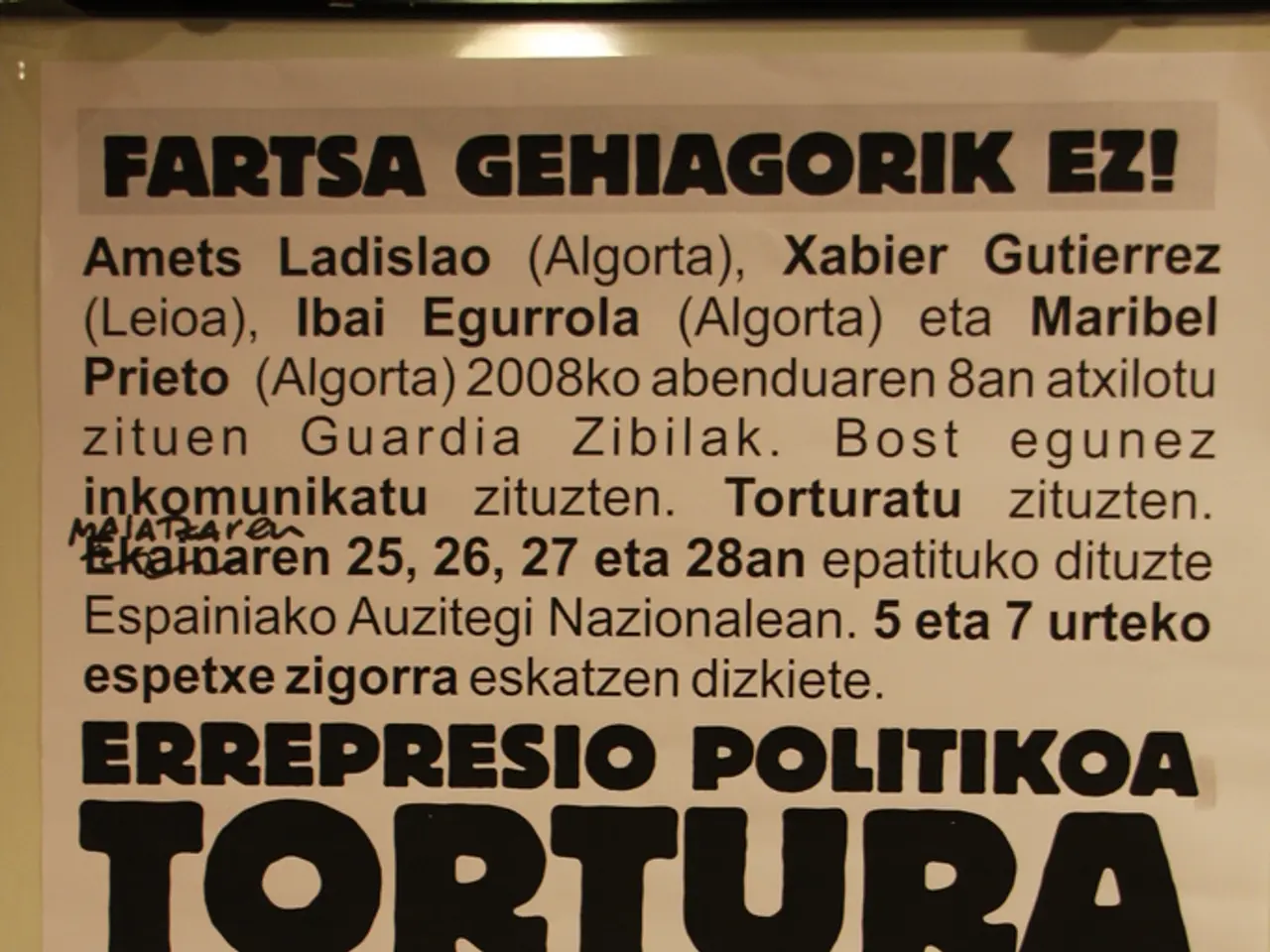"Cuban citizens compelled to plead for food amidst deep-seated economic hardship"
In the heart of Havana, the economic crisis gripping Cuba is evident. On a busy city street, Arnaldo Victores, a 65-year-old former physiotherapist, begs for basic necessities. Across the street stands a brand-new, 42-floor state-owned hotel, a stark reminder of the island's struggling tourism industry.
The economic crisis, exacerbated by structural weaknesses in Cuba's centralized economy and the devastating impact of the Covid-19 pandemic on tourism, has led to soaring inflation, stagnant wages, and severe shortages of basic goods. As a result, poverty and homelessness have worsened significantly, with the island facing a chronic humanitarian emergency.
Poverty and Basic Needs
Essential goods like food have become prohibitively expensive. Economist Omar Everleny Pérez Villanueva estimates that a basic monthly food basket for two people in Havana costs around 24,351 Cuban pesos (~$200), about 12 times the legal minimum wage of 2,100 CUP. Inflation and lack of wage growth are eroding purchasing power, forcing many Cubans to rely heavily on remittances from abroad to survive.
Homelessness Recognition and Scale
Official statistics report a low number of homeless people—3,690 between 2014 and 2023—but experts argue this vastly underestimates reality. Independent data show over 3,000 people officially identified as "deambulantes," a term describing those living in precarious conditions on the margins of society. The reality is a rise in "new homelessness" manifested by people living without secure housing or severely compromised living conditions, often ignored by state media and undercounted in official figures.
Social Safety Net and Health Impacts
Cuba's social assistance reached about 350,000 individuals in 2024 but has proven insufficient amid rising destitution. Healthcare, once a strong point of Cuban social policy, is collapsing with shortages in clinics, medicines, and transportation. This has severe health consequences for the homeless and impoverished, including spikes in respiratory diseases, malnutrition, dental decay, infections, and mental health crises.
Wages and Employment
The average state salary remains low (around 5,839 CUP per month), and many professionals resort to informal work or emigrating. Job losses caused by factors like the closure of Cuba's largest copper mine have deepened economic insecurity, pushing roughly half the workforce into informal employment.
Data Transparency Issues
There is a lack of official, reliable data on poverty and homelessness. Economists and analysts criticize Cuba's statistical opacity, which undermines external efforts to assist and effectively address poverty on the island.
A Growing Problem
Abel, a visibly frail 62-year-old, has been sleeping on the streets for two years after his house outside the capital collapsed. He suffers from arthritis, hypertension, and a liver problem for which he has no medicine. His body is skeletal, and he dreams of having a small room with a bathroom.
Victores, also homeless, has no fixed address and cannot access social benefits due to his visual impairment. His dream is to have a small room with a bathroom. He begs on a busy street in Havana's city center.
President Miguel Diaz-Canel has criticised the lack of sensitivity of the Labor and Social Security Minister over her statement about beggars in Cuba. The Minister, Marta Elena Feito, resigned earlier this month after causing an outcry with her statement that "there are no beggars" in Cuba.
The government has promised to double the minimum pension to about 3,056 CUP (~$25), but this remains insufficient compared to actual living costs. There are no official numbers on poverty in Cuba, but government data shows that 189,000 families and 350,000 individuals benefit from social aid programs on the island of 9.7 million inhabitants.
Sociologist Mayra Espina Prieto calculated that "between 40 and 45 percent" of Cubans live "in poverty." UNICEF stated that nearly one in ten Cuban children live in "severe child food poverty."
In summary, since the economic crisis onset, Cuba faces entrenched poverty, soaring inflation, widespread food insecurity, and an increase in homelessness that is underreported officially. The collapsing social safety net, health service deterioration, and stagnant wages contribute to a severe humanitarian crisis affecting millions, especially vulnerable groups like retirees and those without access to foreign remittances.
References:
[1] Al Jazeera. (2023, January 15). Cuba: The humanitarian crisis unfolding on the streets. Retrieved from https://www.aljazeera.com/news/2023/1/15/cuba-the-humanitarian-crisis-unfolding-on-the-streets
[2] BBC News. (2023, January 10). Cuba's economic crisis: A guide. Retrieved from https://www.bbc.com/news/world-latin-america-51343433
[3] Human Rights Watch. (2022, November 17). Cuba: Human Rights Crisis Deepens. Retrieved from https://www.hrw.org/news/2022/11/17/cuba-human-rights-crisis-deepens
[4] Reuters. (2023, January 12). Cuba's economic crisis sparks anger over official data on poverty. Retrieved from https://www.reuters.com/world/americas/cubas-economic-crisis-sparks-anger-over-official-data-poverty-2023-01-12/
Healthcare shortages in Cuba are contributing to severe health consequences for the homeless and impoverished population. Basic goods like food and medicine have become unaffordable for many due to stagnant wages and the economy's inability to support the growing needs arising from the ongoing economic crisis. In the face of escalating poverty and homelessness, the social safety net, initially regarded as a strength of Cuba's social policy, has proven to be insufficient, leading to a prevalence of respiratory diseases, malnutrition, dental decay, infections, and mental health crises among the most vulnerable.




